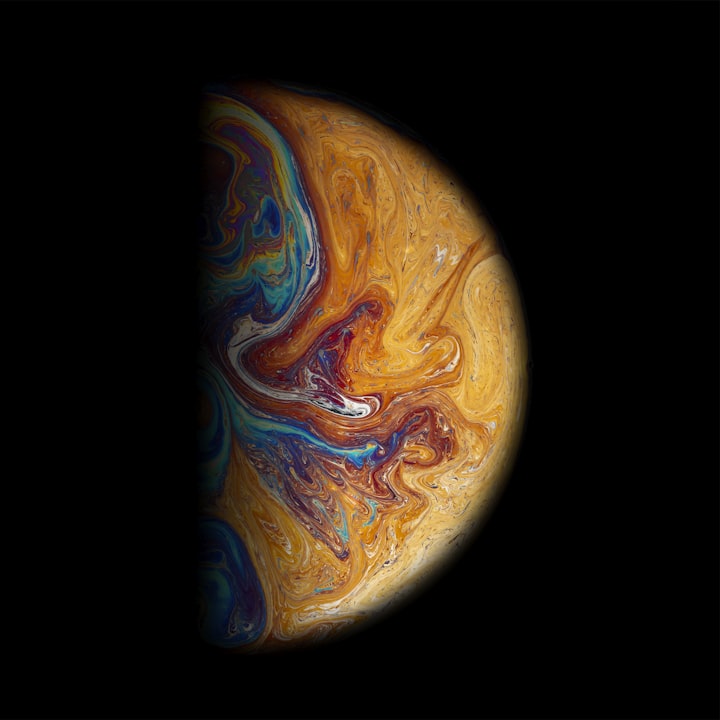
Floating cities of Venus; it looks like something Hugo Gernsback might have published during the fantasy era, but making a second planet from the sun may not be possible because it is widely believed. Apart from world conditions such as Dantean with temperatures that could dissolve lead, and air pressure sufficient at only 3,000 feet [3,000 m] of water, there is still a clever human habitat - not more but inside high winds.
There is a place called "Goldilocks" about fifty miles above Venus. It's not too cold, it's not too hot and it has enough pressure on Earth, this place offers what could be a very easy person to bring back an outer colony ... or space. the idea was recently raised by renowned novelist Charles Stross during a blog post suggesting that billions should buy a floating city located in the Venusian region.
Aside from the impossibility of a multi-billion dollar test from a catch of .01%, the concept itself seems to be very visible, at least for the future. A co-author and scientist, Geoffrey Landis, suggested that work be done at the 2003 Congress of Research, Space Technologies & Applications in 2003. the wind can actually float during the critical period of Venus.
Simply put, human colonies can use the life-giving atmosphere of Venus as we use helium on Earth.
This means that the spirit of the big city can work for health support and gas booster. This greatly increases the size of the world we will be joining and we will live forever. in addition to the possible multiplication of possible size, such a city will produce other benefits. due to the air pressure in the area, the catastrophic descent of those cities is not dangerous. Any tears on the skin of the city can cause the air to evaporate within thousands of hours. Gases usually feel homeostasis. At Mars or in space the difference in pressure can cause rapid, catastrophic loss of oxygen. Venus repairs are usually done by the colonists, so the colony will need the support of the outside touch. Moreover, unlike Mars or the open space, the gravitational force of Venus is 9/10 of the earth, this suggests that our colonies will not suffer from bone loss and muscle spasms that disrupt long-term persistence of microgravity.
While anyone leaving the dome will be required to wear protective clothing to the acidic content of the atmosphere, which is equivalent to an air barrier. No radiation protection will be required during this colony. There are also important resources that will be away from space, ultimately, and face.
It is possible that these resources will use the same momentum to build a good project. Make no mistake about it, these resources will be rated on Earth or benefit the most. This creates one of the most important barriers within the process - money. We lost time a while ago. Like rustic, our astronomical dreams are emerging through the Berlin Wall so the construction of ray gas stations on Route 66. The web has helped kill our “future” ideas backed by space as well. Big data, to some extent, has changed the dreams of the colonies.
Today, exploring the earth takes the form of robots roaming the surface of Mars and telescopes exploring the past looking for its secrets. These are good things, but they have no real satisfaction in the human tests that have taken place since its inception.
The colonization of Venus could reverse this and cause the birth of a restoration period.
This has tangible benefits too, and Hawking has long argued that the only long-term strategy for human survival is to colonize other countries. Finally, another asteroid or nuclear apocalypse that kills the earth could restore human life on earth. it may be helpful to urge backups from another planet that carry humanity for longer. Likewise, congestion can eventually take us out of the planet, so the size of Venus itself will allow billions of cities, each with thousands of people, to float inside the outer sky.
There are still obstacles. Breathing oxygen from the Venusian atmosphere is often difficult. Jonothan Goff, founder of space-loving blogger Selenian Boondocks offers a forum where both sports fans and professionals can discuss such opportunities. They also discuss how to bury it. Sadly, this could be done by telepresence-tested robots used remotely by the colonists above. Russian investigators who entered Venus during the altercation took a few minutes before a beer head was crushed on top of a shy boy. Putting people in the face is very possible.
Venus, however, remains a myth, something natural that our ancestors revered before the dawn of civilization. Exploration is what we have done, we have always done. We are in the limelight that space searches often enter the physical world, but this is often not the case. sometimes there may be floating cities in Venus celebrating and remembering their origins: Earth, a planet made to be uninhabitable and abandoned by its children. But personality will still be there, floating around, in Venus, a replacement pad to start a space exploration campaign. All we would like to be is the will to try to do it.
Floating floating fantasy cities
Maybe a race to the planning of planets like Mars, or in the future to build floating cities around Venus that will be inspired by myth. From Issac Asimov’s books to Neill Blomkamp’s films, it seems like a dream could predict long.





Comments
There are no comments for this story
Be the first to respond and start the conversation.